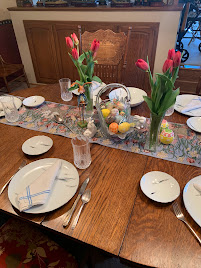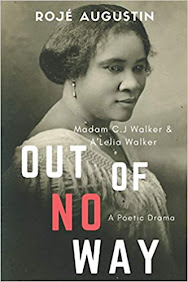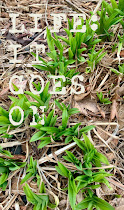Booth by Karen Joy Fowler
480 Pages
Published March 2022 by Penguin Publishing Group
Source: my copy courtesy of the publisher through Netgalley
Publisher's Summary:
In 1822, a secret family moves into a secret cabin some thirty miles northeast of Baltimore, to farm, to hide, and to bear ten children over the course of the next sixteen years. Junius Booth—breadwinner, celebrated Shakespearean actor, and master of the house in more ways than one—is at once a mesmerizing talent and a man of terrifying instability. One by one the children arrive, as year by year, the country draws frighteningly closer to the boiling point of secession and civil war.
As the tenor of the world shifts, the Booths emerge from their hidden lives to cement their place as one of the country’s leading theatrical families. But behind the curtains of the many stages they have graced, multiple scandals, family triumphs, and criminal disasters begin to take their toll, and the solemn siblings of John Wilkes Booth are left to reckon with the truth behind the destructively specious promise of an early prophecy.
Booth is a startling portrait of a country in the throes of change and a vivid exploration of the ties that make, and break, a family.
My Thoughts:These days it feels as though everything has become black or white - there is no grey to any situation. We imagine that this is a relatively recent development. But have you ever thought of John Wilkes Booth as anything other than "the bad guy?" I can't say that I have; he has always been, in my mind, the guy that was so pro-slavery that he was willing to kill the President of the United States because he had emancipated the slaves. It has never occurred to me to wonder what drove him to commit murder.
Even more rarely do we wonder about the families of people who commit heinous crimes. What blame lies at their feet? What might they have done that would have prevented what happened? How did what their family member do affect the rest of the family's lives? In Booth, Karen Joy Fowler gives us the person, John Wilkes Booth, not merely the assassin, as seen through the eyes of the family who loved him.
This is, of course, a fictionalized account of the Booth family. But Fowler has done such a tremendous job of researching the family and the times they lived in that it was often difficult to tell where fact ended and fiction began. Junius Brutus Booth was an unbalanced, renowned actor (casting a shadow his three actor sons struggled with), an alcoholic, anti-slavery vegetarian who raised his family in a way that would now be considered bohemian. After Junius and Mary (John Wilkes' mother) have had ten children, it comes out that Junius left behind a wife and son in England; he and Mary are not, in fact, married, another hurdle his children will have to overcome. Oh yeah, he also once threatened to cut the throat of old friend President Andrew Jackson. Given that, his place in the family, and the time and place he grew up in, it begins to become inevitable that John Wilkes would turn out the way he did.
Fowler also intersperses bits of Abraham Lincoln's life, drawing us to the point where John Wilkes and Abraham will come together. We learn that his stepmother encouraged young Abraham's studies, contradicting a father who had forbidden reading as a waste of time; Lincoln never, Fowler writes, credited his father with any of the things that made Lincoln a success. At another point, Fowler writes, "Lincoln has married the woman he said it would kill him to marry." In another piece, we learn that Lincoln was responsible for "the largest act of presidential clemency in United States history. Also the largest mass execution." This because of his inaction in the West, as settlers and Native Americans clashed. In these short pieces, we learn a great deal about the kind of man and the kind of leader Lincoln would become.
I know that as I've been reading this one I've made it sound like a chore. I even told my dad, at one point, that I was "slogging" my way through it. Let me make it clear right up front - that had nothing to do with this book and everything to do with reading it on my phone, which turned a 480 page book into a 920 page book. If you'll look to my list of favorite books of 2022, though, you'll see that I've already put this book on that list. And why is that? Partly because of gems like this:
"Maybe Mother is the one keeping Rosalie at home. Maybe, with nothing but love in her heart, his darling mother has eaten Rosalie alive. This seems to be something parents sometimes do."
Also because each of the family members and their relationships are so well developed, so relatable. The time period and settings come alive and I felt that, while I was getting a superbly crafted story, I was also learning a tremendous amount.
In looking back at the United States, leading up to the Civil War and, ultimately, Lincoln's murder, Fowler also reminds us that we have not come all that far in 160 years. It's a realization she came to when she realized in 2016 that Lincoln's warning about the tyrant and the mob were still pertinent. As she wrote in her introduction:
"The Lost Cause may be temporarily mislaid, but it has never been lost. Whenever Black people exercise genuine political power in this country, the assassin appears, the mob rises. This is the history of America and there is no escaping it. Abraham Lincoln told us so."
In the book itself she write: "...both murders affect Lincoln deeply. In his speech, he warns of two possible threats to the republic. The first is found in the lawless actions of the mob, the second in the inevitable rise someday of an aspiring dictator. The gravest peril will come if the mob and the dictator unite."



















